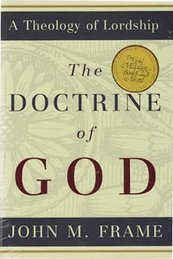There is a danger with familarity. For church with a long history, we sometimes do not question exisiting practices. We may find it too familiar to notice that it is a problem. We may feel too comfortable to fix any problem. We may feel safe, very safe, and this can be problematic.
If we experience worship as safe, as something that never rocks our world or shakes us out of our normal habits of feeling, seeing, thinking, and behaving, we may be consoled but we shall never be redeemed. (Paul J Waldell, Becoming Friends)
When we feel too safe, we may stop praying. When we feel too safe, we may stop going to church. In James 1:2-18 (NIV), we are reminded of the purpose of trials:
2Consider it pure joy, my brothers, whenever you face trials of many kinds, 3because you know that the testing of your faith develops perseverance. 4Perseverance must finish its work so that you may be mature and complete, not lacking anything. 5If any of you lacks wisdom, he should ask God, who gives generously to all without finding fault, and it will be given to him. 6But when he asks, he must believe and not doubt, because he who doubts is like a wave of the sea, blown and tossed by the wind. 7That man should not think he will receive anything from the Lord; 8he is a double-minded man, unstable in all he does.
9The brother in humble circumstances ought to take pride in his high position. 10But the one who is rich should take pride in his low position, because he will pass away like a wild flower. 11For the sun rises with scorching heat and withers the plant; its blossom falls and its beauty is destroyed. In the same way, the rich man will fade away even while he goes about his business.
12Blessed is the man who perseveres under trial, because when he has stood the test, he will receive the crown of life that God has promised to those who love him.
13When tempted, no one should say, "God is tempting me." For God cannot be tempted by evil, nor does he tempt anyone; 14but each one is tempted when, by his own evil desire, he is dragged away and enticed. 15Then, after desire has conceived, it gives birth to sin; and sin, when it is full-grown, gives birth to death.
16Don't be deceived, my dear brothers. 17Every good and perfect gift is from above, coming down from the Father of the heavenly lights, who does not change like shifting shadows. 18He chose to give us birth through the word of truth, that we might be a kind of firstfruits of all he created.
From this passage, we learn:
- The good that has come from trials.
- The comfort we can have in trials.
Familiarity can be a double-edged sword. It can be both useful and dangerous. We can easily develop familiarity today, for example,
- With those teaching the Word of God ("He no longer impresses me"
- With the message of the Word itself ("I've heard that many times before")
Reading bible is beneficial. It helps us to be familiar with the bible. Familiarity of the Bible can help us to better understand God and grow spiritually. However, familiarity of the Bible can also cause us to grow cold to it. We stop doing what God reveals to us in the bible!! Like the psalmist who is aware that he doesn't often feel or see wonderful things as wonderful, we may also pray Psalm 119:18 each time we go to the Bible: "Open my eyes that I may behold wonders in your law." The point of this prayer is that there are wonders everywhere in the law, in the Bible, in the instruction of God. We need to ask God to help us see the wonders in the bible. We need to be free from the familiarity that breeds contempt. For instance,
- The better we know people, the more likely we are to find fault with them. - The New Dictionary of Cultural Literacy
- If you know someone very well or experience something a lot, you stop respecting them. - The Free Dictionary
- The more you know something or someone, the more you start to find faults and dislike things about it or them. - UsingEnglish.com
When we know a person very well, we may not even believe them! As Matthew 13:54-58 tells us:
And when Jesus had finished these parables, he went away from there, 54 and coming to his hometown he taught them in their synagogue, so that were astonished, and said, "Where did this man get this wisdom and these mighty works? 55 Is not this the carpenter’s son? Is not his mother called Mary? And are not his brothers James and Joseph and Simon and Judas? 56And are not all his sisters with us? Where then did this man get all these things?" 57And they took offense at him. But Jesus said to them, "A prophet is not without honor except in his hometown and in his own household." 58And he did not do many mighty works there, because of their unbelief.
The people listening to Jesus were knew Him. They were familiar with Him as they were His relatives and friends. At first they were impressed with Him, the way He talked and the wisdom and clarity of His words. Later on, they started to doubt what he said. Are we guilty in the same why today ? Are we developing the familiarities today with those who teach the word of God in Truth and Love? Do we allow our familiarities today to breed contempt, no longer appreciating the word of God or those who teach and preach it (taking them for granted)? We need to be careful here, as Matthew 13: 58 reminds us
And he did not do many mighty works there, because of their unbelief.
Jesus, may our familiarity with you lead us not away from you, but closer to you.



2 comments:
This is Hannah Bevills, Editor for Christian.com which is a social network made specifically for Christians, by Christians, to directly fulfill Christian's needs. We embarked on this endeavor to offer the ENTIRE christian community an outlet to join together as one (no matter denomination) and better spread the good word of Christianity. Christian.com has many great features aside from the obvious like christian TV, prayer request or even find a church/receive advice. We have emailed you because we have interest in collaborating with you and your blog to help us spread the good word. I look forward to an email regarding the matter, Thanks!
God Bless
|Hannah Bevills|Christian.com|
hannah.bevills@gmail.com
CALLING ON THE NAME OF THE LORD?
What is the meaning of calling on the name of the Lord? Many assume that believing in Jesus and saying a form of a sinner's prayer constitutes, calling on the name of the Lord. The problem with that theory is none of the conversions under the New Covenant support that assumption. Not one time is anyone ever told to believe and say the sinner's prayer in order to be saved.
The apostle Peter on the Day of Pentecost quoted the prophet Joel, Acts 2:21 And it shall come to pass that whoever calls on the name of the Lord shall be saved." (NKJV)
The apostle Peter preached the first gospel sermon under the New Covenant. Peter did not tell the 3000 converts to believe and say the sinner's prayer.
Peter preached the death, burial, and resurrection of Jesus. He preached Jesus as both Lord and Christ. When they heard this they asked Peter and the rest of the brethren what they should do?(Acts 2:22-37) Peter told them what to do. Acts 2:38 Peter said to them, "Repent, and let every one of you be baptized in the name of Jesus Christ for the remission of sins; and you shall receive the gift of the Holy Spirit.(NKJV)
How did the 3000 on the Day of Pentecost call on the name of the Lord and become saved?
1. They believed that Jesus was both Lord and Christ.
2. They believed that God raised Jesus from the grave.
3. They repented. Repentance is a change of heart. Repentance means to be converted so that God may forgive your sins. Repentance is to make the intellectual commitment to turn from sin and turn toward God. (Acts 3:19, Acts 2:38)
4. They were immersed in water (baptized) so that their sins could be forgiven.
How did the 3000 on the Day of Pentecost not call on the name of the Lord?
1. They did not say a sinner's prayer.
2. Not one person was asked to pray for forgiveness.
3. Not one single man was told to be baptized as a testimony of his faith.
4. No one was told that water baptism was a just an act of obedience.
5. No one was informed they were saved the very minute they believed.
6. Not one person was told that water baptism was not essential for the forgiveness of sins.
7. Not one person was told to be baptized so they could join a denominational church.
Jesus said he that believes and is baptized shall be saved. (Mark 16"16) Jesus did not say he who believes and says a sinner's prayer shall be saved.
You ARE INVITED TO READ MY BLOG POSTINGS--Steve Finnell
Post a Comment